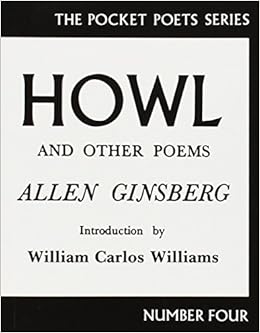Howl and Other Poems // Allen Ginsberg

Looking at Howl, for example, it could be a piece about lifestyle, semi-autobiographical and riddled with drugs, sex and mischief. It could be an anti-capitalist poem, shaming the destructive nature of oppression. It could be about mental health. Is it a discussion of sexuality? What if it’s about religion? The government? Ultimately, it is all of these things yet it is none. It was with work like this that I realised that literature does not have to have one strict, unchanging meaning. That people perceive literature differently and, as Margaret Atwood said, “the answers you get from literature depend on the questions you pose.”
It was also the discovery of the Beat Generation that led to the overwhelming ponderings over originality that formed the basis of my EPQ. Struggling with the idea of creation and originality anyway, seeing such truthful, semi-autobiographical works (such as On The Road and And The Hippos Were Boiled In Their Tanks) led me to question the concept even further, wondering what constitutes as original. Is it still original if you’re basing your writing off of an interaction or a memory? But then, how else would you have anything to write about? Also, the cut-up and fold-in techniques that were made famous by William S. Burroughs were another factor in this internal battle against creation I was having. How is a remix classified as an original in its own right if it is nothing but a conglomeration of different original pieces?
Ultimately, Howl and Other Poems led me to understand who I am better by challenging my ways of thought and helping me to broaden my views and expand my skills. While the work itself also beautiful and there are some lines that will be forever etched into my memory, the reason that this book made my top five is because of the consequences of my reading it rather than the read itself.